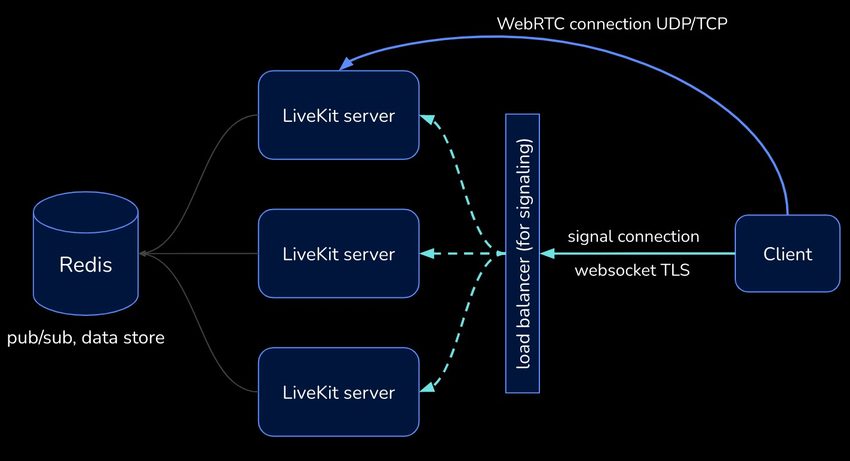LiveKit is an open-source project for scalable, multi-user conferencing with WebRTC. LiveKit enables you to seamlessly integrate live audio and/or video into your applications.
LiveKit features
-
The SFU overcomes the limitations of traditional, vertically-scalable WebRTC SFUs.
-
We have integrated support for the latest JS frameworks, Kotlin, Swift, Flutter and others.
-
JWT Authentication and server APIs were built for production
-
Strong business connections are very important when it comes to the internet. These are built-in when you use UPD, TCP, and TURN.
-
Installation is painless: just download the single binary and you’re set to go.
-
Streamline your content production with intelligent features like speaker detection, simulcast, selective subscription and moderation APIs
WebRTC is a powerful, universal protocol that has support across all major browsers and mobile platforms. However, it is not as easy to use as mobile app development software. For example, the developer needs to understand core concepts such as signaling and coordinating connections between peers. WebRTC has a problem scaling to large numbers of people because it is a peer-to-peer protocol.
LiveKit Architecture
LiveKit is written in Go, which was made possible by their Pion WebRTC; ion-sfu components, as well as the amazing community behind them.

Livekit is scalable and doesn’t require a lot of resources to run. It can be configured to work on one node or as many as you want with the same added benefit of ensuring those in the same room will connect to the same node.
Livekit only needs the node you’re running it on to run. For a distributed setup spanning separate nodes, Redis is required.





